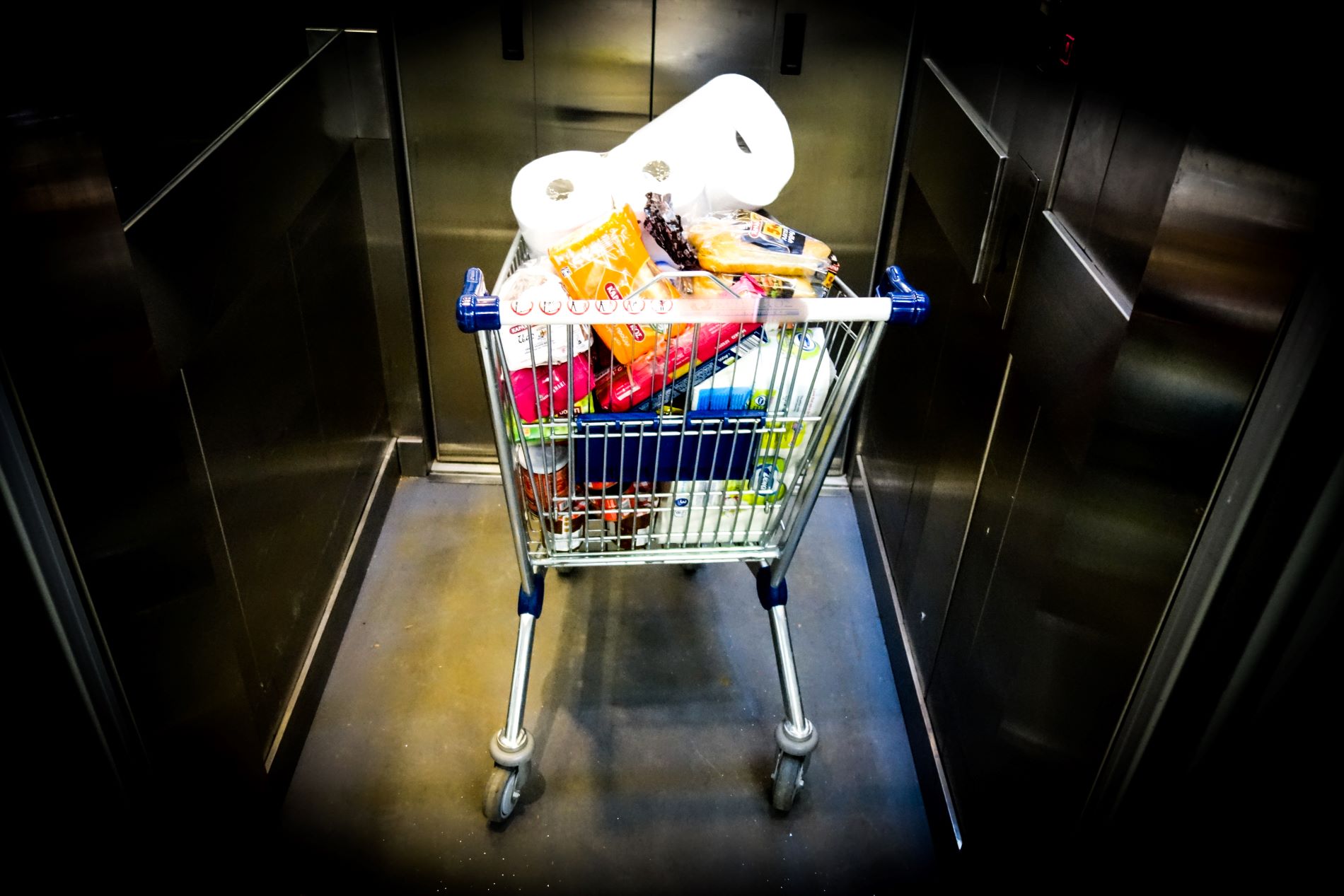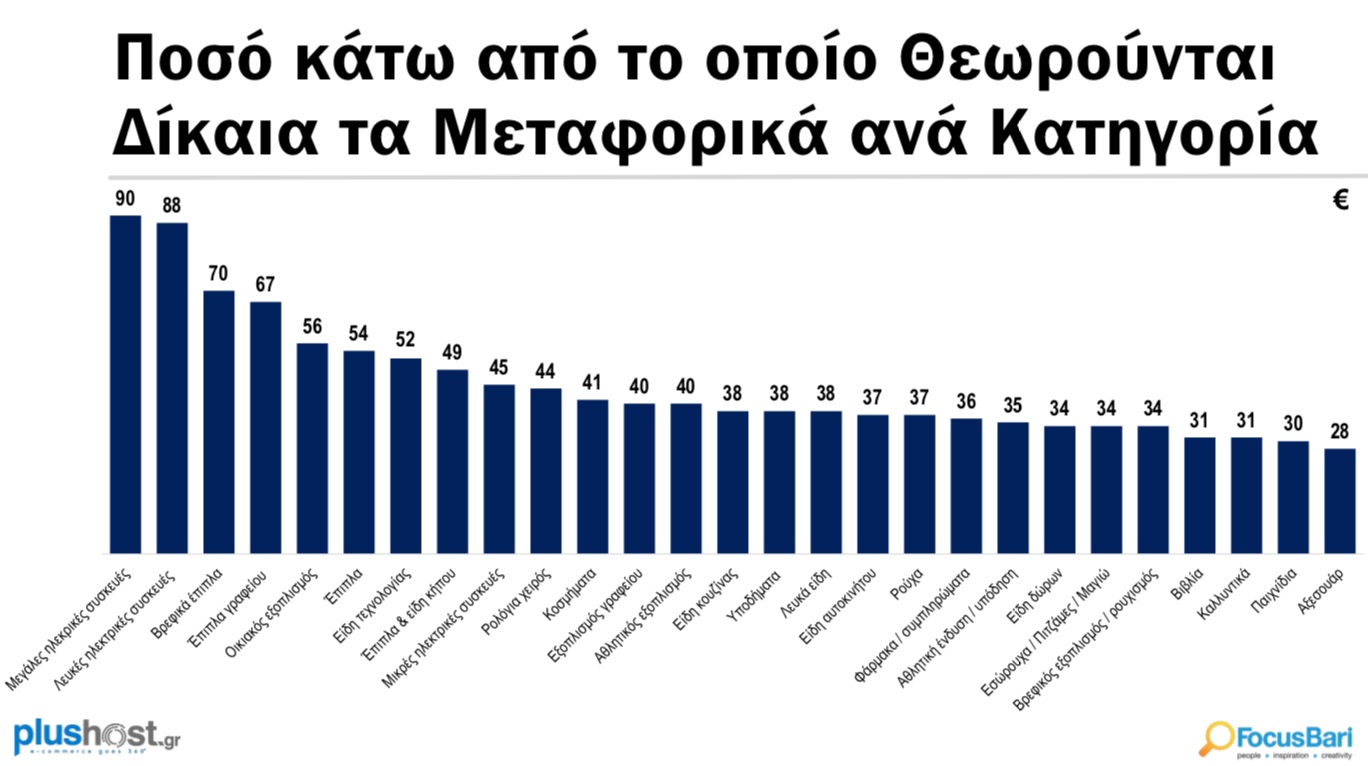
Getting the goods you bought from your place for free is nothing new in our country. It has been around since it was organized sectional Mail StoresAnd groceries and then Super Market. We see it in black and white Greek movies, most notably Bakalogato with the famous Zikos. Also, technology in retail has been around for over fifty years, beginning with TEL.EXYP. (telephone service) from sclavenet in 1967, before the latter entered supermarkets. In most cases, until recently, Greek consumers enjoyed these transportation services for free. Now this tends to quickly become a thing of the past, delivered to my door and free “doesn’t fit the same proposition” as reported by both supermarket employees and the rest of the retailers.
Giant e-commerce
The exponential growth of e-commerce in recent years has played an important role in eliminating free shipping. And it may have been a necessary evil during the pandemic years with the chains even paying taxis to bring goods to our door, now that conditions are normal, on the health side the cost of transportation remains affordable only to merchants. In the years leading up to the pandemic, the share of e-commerce was so low that free shipping could be accommodated as profits from activities in physical stores allowed.
Supermarkets that “enter”
Nearly two years ago, from the conference platform, Aristotle Panteliades logistic He was the first to talk about the losses recorded by supermarket chains from their electronic stores, a position held by both Yannis Masoutis and the then president of the company. AB Vassilopoulos. Last Wednesday from another step, the Phygital Commerce Summit, the Greek supermarket market guru, and Konstantinos Machairasshowing the current situation in the field of electronic sales in this particular market and the difficulty of keeping it free.
According to Mr. Machira, providing free shipping was a mistake initiated by a player who is no longer in the market and unfortunately others have followed suit. “The investments that Greek food retailers are making today in the field of e-commerce are emerging. They are entering a level of profitability and if they get anything, it is from this shift to e-commerce that they improve their productivity to a certain extent. (…) The first cost that the supermarket picks up is the cost.When the consumer is shopping in the supermarket, the picking is done by himself, in the online ordering this operation is done by the employee. Previously, this cost was estimated at about 8%. Before covid, the largest chain had Orders 1200 orders online a week during covid it was 12000 and we entered an era where orders were submitted a week later Now with normalization there is competition in terms of time we went on the same day, in three hours and in one hour without doing any cost study.in person If I had a chain, I would immediately remove free delivery at short intervals.”
It should be noted that the situation has become more difficult for the heads of supermarkets, in addition to increasing the percentage of electronic sales, they have to face increases in transportation (fuel) prices to our door and more. More important than the labor cost. Most of the employees they employ (collectors and drivers) are mostly paid a base salary, and two consecutive increases in 2023 make the cocktail even more bitter.
As mentioned above, the door free offer combination almost quickly disappeared. A typical example is the recent move by MyMarket to try out express service (possibility to order up to 25 tokens regardless of quantity within one hour) for three euros. A similar service is available with wolt where charging is based on store kilometer. AB Vassilopoulos (Wolt and Instashop) and Sklavenitis (efood) both have similar express-service partnerships, with the latter keeping delivery free at over €30, and charging the entire food cost. The other large chain in the region, Germany’s Lidl, consciously refuses to enter the home delivery space because it considers it expensive (especially for the food sector) and a loss.
Charges from retailers as well
The post-pandemic return to normal has simplified transportation costs and non-food retail. It has started before scrotz that changed their cart subscription policy. At the same time, as mentioned last Wednesday from the Phygital Trade Summit stage, Vassilis Kostopoulos, Regional Director of Omnichannel for Intersport, Greece’s largest sportswear chain now charges 1 euro for returns, resulting in a slight 5% drop, while also considering charging a fee for returns, which until now have been free. The company is in the process of reviewing its policy on cash on delivery and shipments during this time and other changes are likely to come.
in the same event, Nikos Varvadoukas, Vice President, Brand and Customers, Public Group He noted that Public has been eliminating free shipping since November. As he mentioned, the same policy was followed by two other big players in this field, while for his own company, measurements showed that consumers were not affected by the interruption of free delivery. “The customer is ready, if you have good experience and generally good service, he is willing to pay transportation costs,” he characteristically said.
What consumers say
The transportation issue is the second most important factor in choosing an online store, according to the results of a survey presented this week by Focus Bari. In particular, 59% of respondents have free shipping as their main criterion for choosing a store. However, at the same time, consumers understand that free shipping is not always possible. Thus, answering the question “What is the amount below which the carriage is fair for each category” they consider, indicatively, 90 euros for large electrical appliances, 52 euros for furniture, 38 euros for shoes, 31 euros for books and 30 euros for toys.
cheaper alternatives
Transportation costs that come this time are here to stay, and as the retailers report says, it is not excluded that they will rise in the coming period to make them more fair. But they acknowledge that you will have to provide alternatives to move forward with further increases. One such alternative is safes (skroutz point, chest now, etc.) that have popped up like mushrooms in every neighborhood lately. According to retailers, the set of selected points, since there is more delivery on their part, will have a lower cost. Accordingly, there are no costs for online orders made by the customer, but he receives them at a predetermined time from the store of his choice.
Follow Powergame.gr on Google News to get instant and valid financial information!

“Avid problem solver. Extreme social media junkie. Beer buff. Coffee guru. Internet geek. Travel ninja.”






More Stories
Unstoppable Stock Market – New 13-Year Record with Another 1.9% Jump
Officially: This is the new Opel Grandland (+Video)
Which stock is very close to being included in the MSCI index?